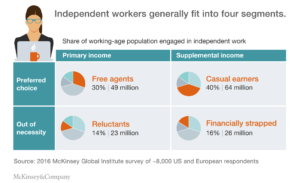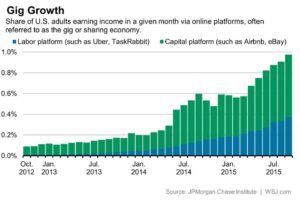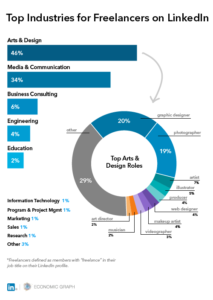gig economy
noun
1. a labour market characterized by the prevalence of short-term contracts or freelance work as opposed to permanent jobs.
“working in the gig economy means constantly being subjected to last-minute scheduling”
Employees are increasingly more willing to sacrifice additional benefits such as Gratuity or Health Insurance for greater flexibility.
Part-time job opportunities have risen from 5-10% to 20-25%.
7.7% of all companies offer flexible work opportunities.
Media, real estate, legal, hospitality, tech value, management, medicine allied and education sectors are all leading the way in offering flexible job opportunities.

Let’s dig a little deeper to unearth reasons for the growth of the Gig Economy and what benefits it accrues to its stakeholders.
The workforce feels that provides greater creative opportunities than a full-time job.
They feel they get more free time for other pursuits. And provides multiple sources of incomes
The contractors, on the other hand, feel they have a greater talent pool to choose from with lesser contractual obligations that full-time employees come with.
Talent is quicker and more effective to deploy with the ease of servicing niche areas for specific projects.
Besides, a joint workforce makes for greater skill acquisition when individuals collaborate and jointly contribute to success and fulfilment of any given project.
The US economy is seeing rapid strides in the Gig Economy with companies like Uber, TaskRabbit, Airbnb and eBay leading the way.

The following graphic shows how the pie is split between sectors.

New Industries and verticals are more than ever tapping into talent resources outside the periphery of their own employment pool. Domain experts are constantly being called upon to collaborate on specific projects that leverage their knowledge.
Organisations are richer for such collaborations; they enhance the existing knowledge base exposing employees to a wider range of subjects and skills.
The Gig Economy is here stay, global research states that by the year 2030 at least 40% of the workforce will derive 50% or more of their income from “Gig Roles”.
Photo by Craig Whitehead on Unsplash



Recent Comments